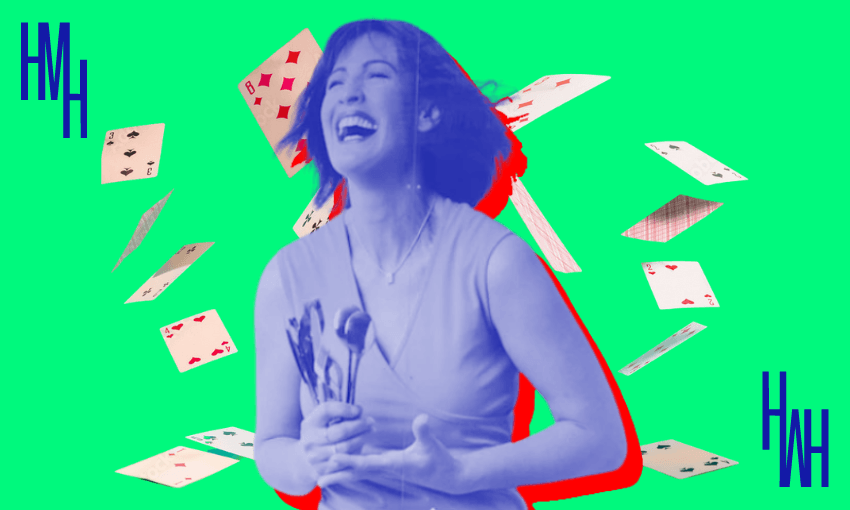Albert West goes sightseeing in Cairo, where the wonders of antiquity and the fragility of the modern world stand side by side.
Omar led through an arcade of small shops to a large black door. Behind the door teenagers flounced across the bar with phones clamped to their ears. Others ignored them in favour of Tinder swipes. We could have been anywhere. After a few drinks Omar leant across and shouted at me, “Drake. Rich kids love Drake. He’s one of them.”
I longed for Kanye. Omar wouldn’t shut up about Jay-Z.
What surprised me about the bar wasn’t Drake but that these kids were so white. The streets of Cairo are filled with people of various shades of brown. But here in this bar, the people were white. There was even an Albino, Andre the Giant big, who I just hoped would never go too far south. I mistook the kids for American exchange students, here to practise their Arabic. But these kids spoke like natives. It wasn’t for a couple of days that I worked out that these were the decedents of the Mamluks, the Caucasian slave-boys that ended up ruling Egypt for centuries. These kids were the product of hundreds of years of privilege.
Omar had arranged a guide for me to see the sights. He didn’t turn up, though, and he sent his 21-year-old nephew. The nephew said that the guide’s leg, still filled with birdshot caught in 2011, was playing up. We meet in Tahrir Square, which, with an unironic nod to Joni Mitchell, the authorities have paved over and made into a parking lot.
The Egypt Museum is the sum total of what has not been stolen. It is a dirty, disorganised and dark place; the antithesis of Te Papa. But it is lovely. There are relics in there that are pared-back and simple, carved pale granite with symbols Apple would love, from the Middle Kingdom, thousands of years ago. The bus-loads of Chinese and Indian tourists, immune to security concerns that have scared off the Europeans, were crowded into the King Tut’s rooms, staring at the gold and blue mask that has graced generations of books. The nephew spent our time in King Tut’s rooms talking about the terrible new floor that had been laid; loudly complaining of the money wasted amid corruption. Promotion for the man in charge of the floor has been swift; he is now the minister of antiques. And by chance, he walked through the King Tut room in the middle of a large entourage, trailing security. My guide stood back and glared.
The uncle joined us for lunch. He told stories of being at University in the 60s, about how they got close to a Communist revolution, but President Nasser pumped money into the Islamists and they lost the campuses. He talked about the feeling in Tahrir Square back in 2011. He talked about being shot. He talked about how his daughter went everyday to the square except for the last. That morning his daughter told him she thought it was all a big con. He was weeping when he said that the daughter has now taken the hijab and wants to move Germany. He kept talking about how the next time they wouldn’t be fooled. Next time.
In the afternoon they both took me out to the Giza Pyramids. All the way out they were telling me that I was not to talk to any of the hawkers. They said they were the worst type of people. A hundred years ago ANZAC troops wrote the same. But when I chatted I found them great fun. I don’t think they saw me as a mark. Not with buses arriving filled with Indian and Chinese tourists. I am white and pale and poor. I am old news.
The pyramids are truly astonishing. There are few things that live up to their reputations. But the pyramids do. Back in the day, before their white casing stones were worn away by weather and man, and with it’s lost golden pyramidion on top, they would have literally shone. Back in the day, they were 146m high in a 10m high world. It is easy to see why they would have seemed like the work of the Gods. Inside the Great Pyramid is a cool, dark underworld. You have to move by crouching. Till you hit the Grand Gallery, where the ceiling soars above you. I could have stood there, deep inside the pyramid, high above the ground, for days.
Later, as we were gazing on the Sphinx, which is surprisingly small, a cavalcade of cars, mini-buses and jeeps raced up and parked. Out jumped large buzz-cut Egyptian men in 70s leather jackets and tiny Chinese men in Italian suits. Within moments 50 of them were in a tight packed group hustling through the security gates that held us mortals back. Once inside the fences they spread out around for selfies and group photos using the Sphinx as a backdrop. Ten minutes later they huddled up, moved at speed, remounted their cars and were gone. We asked the two old men who were settling back into their folding metal chairs, safely behind the closed security gate, who they all were. The deputy premier of China, apparently: the new money, wearing a well-trodden path through Egypt’s past, to invest in their future. It has been like this for thousands of years.
I was having a beer at my fancy pants hotel later that night and I got chatting to the man opposite. He was a Canadian Egyptian engineer (Canada having just about given away passports to wealthy Egyptians for decades). We talked about China. Apparently, they are funding the vast new building plans in the country with loans. Although the funds will be never enter Egyptian accounts. They go direct to the Chinese construction and engineering companies; an external stimulus package to keep the companies going. The upper-level Egyptians will get their money from selling the land. Egypt is a land of dreams.
The real Egyptian real estate can be seen on the way back to Cario from Giza. The land used to be, and legally still is, agricultural. But in reality it is pocked with ugly red-brick half-finished multi-story shells. The farmers sold the land, illegally, keeping one building for themselves; and the developer puts up others. All of it is protected by a network of payments. This is where the legions of country-folk arrive to. They bring their country ways, their country attitudes, to the city. The only joy in these buildings are high up, in the blue and yellow Pigeon lofts they wear as crowns.
Corruption seems to be endemic in Egypt. But if everyone is corrupt, is it actually corruption? Are those unhappy with it, really only unhappy with their share? If they get to the top, they will make it work for them. That is what we saw in 2011. It’s also why Egyptians join professional syndicates, unions, political parties and religious groups. It’s easier in the system if you have a team. People who know people, who know people. It’s the only way to get things done. Without a team, nothing gets done.
All the basics are subsidised in Egypt. Selling gas and bread bankrupts the country. Both are riddled with corruption. They introduced a card and pin to reduced corruption in the bread lines. But employees of the chip-and-pin company employees sold the system out before they installed it. The bakers kept selling bread that didn’t exist. Made a fortune. So much so, the government, not wanting to admit the fraud, had to say that the harvest was bigger than it was, because so much fake bread got sold.
The Egyptians often claim to be the end result of 7,000 years of civilisation. During much of this Egypt has been a cultural leader. Not only in ancient times but also through the 19th and 20th centuries. Ideas that still drive politics in the Middle East originated in Egypt. It was home to many of the greatest actors, writers, poets and leaders. But all that seems to remain is a keen sense of this history. Glory Days. Reminding them all that there was once better Egyptians’ living.
Egyptians take this loss of status badly. It is most evident in their belief that others are trying to humiliate them. Poor Messi, the Argentinian football super-star, made the mistake of going on an Egyptian talk show where, when asked to donate something to be auctioned for charity, suggested his boots. There is an issue with this choice in Islamic culture, of which Messi was unaware. But the Egyptians, led by a MP and talk show host, took it as an intentional insult and attempt to humiliate their great nation. The talk-show host harangued his viewers, telling them he would send all his shoes to the poor of Argentina. An over-reaction that only the thinnest of skins would produce. It is only pride they have left and they will go to war for it. Perhaps even literally.
All around Cairo there is security; metal detectors into the hotels, on street corners, at the pyramids, outside the Egyptian Museum. The security is young boys in black who carry automatic weapons. They handle their weapons in such a way that you suspect that that are not yet old enough for ammunition. They often sleep standing up, their heads on their ballistic shields. This is security paid nothing, and allowed to shake down the populous.
At the airport there was a giant pulsing, pushing mass trying to get into the terminal building. I joined the back of the mass and stayed there for a good 20 minutes. Everyone who joined behind me pushing past me. This was queuing as a full-contact martial art, full of shouting and gesticulating. Multi-trolley convoys, stacked with giant cardboard boxes, held together with string, pushed through the throng. It took me 45 minute of solid pushing and shoving to be at the front, where a giant security man patted down every person, checked every ticket, glanced at every passport. Here was the guy holding up thousands of lives. The disdain he had for all of us came off him like a smell. The only pleasure I took was the obvious hair transplant he had. Rows and rows, planted in Turkey, that hadn’t yet taken. I took off my hat for him, without prompting, to show him my luxurious locks. He squinted at me, aware of the humiliation and pointed to the back of the crowd.
Albert West is the pen-name of a Middle East based New Zealander



